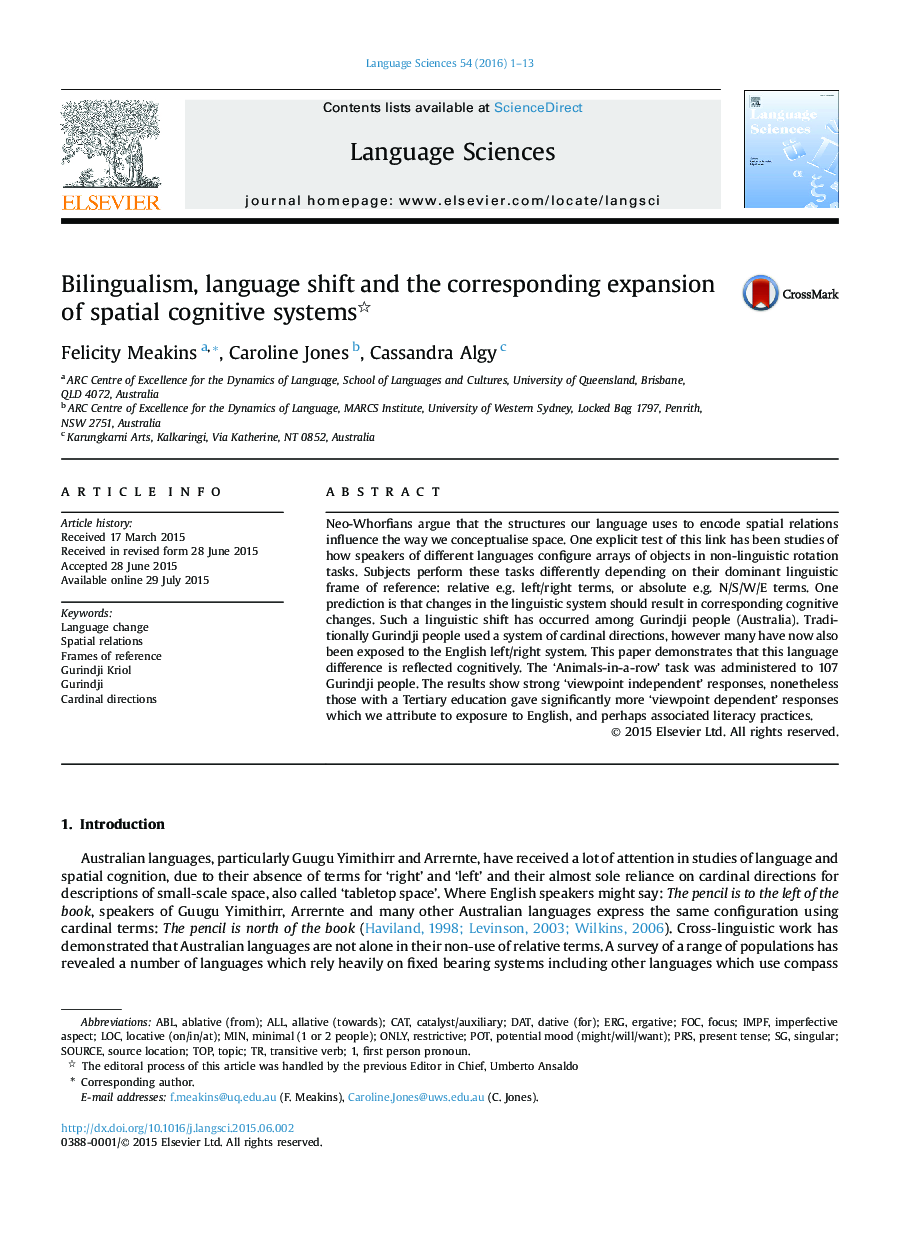| کد مقاله | کد نشریه | سال انتشار | مقاله انگلیسی | نسخه تمام متن |
|---|---|---|---|---|
| 1103033 | 1488149 | 2016 | 13 صفحه PDF | دانلود رایگان |

• Neo-Whorfians claim that the structures our language uses to encode spatial relations influence how we conceptualise space.
• We tested 107 Gurindji people using the ‘Animals-in-a-row’ rotation task.
• We argue that the majority ‘viewpoint independent’ responses is a function of the continued reliance on Gurindji cardinals in large scale space.
• The high number of ‘viewpoint dependent’ responses are a function of exposure to English literacy.
Neo-Whorfians argue that the structures our language uses to encode spatial relations influence the way we conceptualise space. One explicit test of this link has been studies of how speakers of different languages configure arrays of objects in non-linguistic rotation tasks. Subjects perform these tasks differently depending on their dominant linguistic frame of reference: relative e.g. left/right terms, or absolute e.g. N/S/W/E terms. One prediction is that changes in the linguistic system should result in corresponding cognitive changes. Such a linguistic shift has occurred among Gurindji people (Australia). Traditionally Gurindji people used a system of cardinal directions, however many have now also been exposed to the English left/right system. This paper demonstrates that this language difference is reflected cognitively. The ‘Animals-in-a-row’ task was administered to 107 Gurindji people. The results show strong ‘viewpoint independent’ responses, nonetheless those with a Tertiary education gave significantly more ‘viewpoint dependent’ responses which we attribute to exposure to English, and perhaps associated literacy practices.
Journal: Language Sciences - Volume 54, March 2016, Pages 1–13